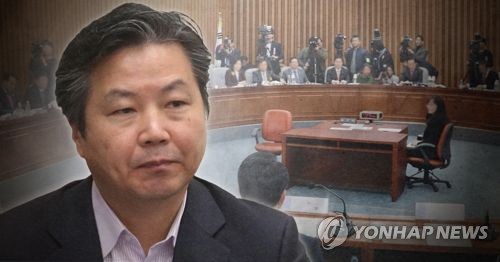Venture minister nominee Hong Jong-haak is expected to face a tough grilling during a parliamentary confirmation hearing next month amid rising criticism of his family's property inheritance and controversial remarks he made in the past.
Soon after President Moon Jae-in tapped him to lead the newly-minted Ministry of SMEs and Startups last week, the former economics professor and lawmaker came under fire for a recent spike in his family's assets and his blistering criticism of family-run conglomerates.
The hearing for him is set for Nov. 10. His appointment does not require parliamentary approval, but disapproval will impose a political burden on Moon, given that his first pick for the SME minister withdrew amid disputes over his religious and historical views.

Opposition lawmakers have zeroed in on his family's inheritance of property from his mother-in-law, which may not be illegal but seemingly contradicts with his views that are sharply critical of family-owned conglomerates.
Hong has reported to the government that his family had a total of 4.95 billion won (US$43.7 million) in assets in 2016, up from 2.17 billion won reported in 2012. The assets include those his teenage daughter inherited from her grandmother in 2015.
Hong's aides said that all the gains were legitimate and the relevant taxes were paid. But critics took issue with his earlier position against such large transfers of wealth among relatives.
"We will try to judge his moral character, while checking if the process of his amassing wealth was okay for him to take up the ministerial position," a parliamentary official told Yonhap News Agency, declining to be identified.
Another official pointed out that the inheritance could be "at odds with public sentiment."
Hong's past publications have also come under intense scrutiny.
In his academic papers published in the early 2000s, Hong referred to family-owned conglomerates as "cancer cells," arguing their relentless business expansion has driven small firms into insolvency and that their massive borrowing of funds negatively impacts the country's overall economy.
Some critics called such a position "too radical," stressing that big companies still play a pivotal role for Asia's fourth largest economy, though they need reforms.
Hong has also been denounced for comments in his 1998 book that painted those who did not graduate from top-tier universities as ones "without fundamental knowledge."
"His academic elitism, materialism and distorted views on SMEs are at serious levels," Lee Jong-cheol, the spokesman of the minor opposition Bareun Party, said recently.

